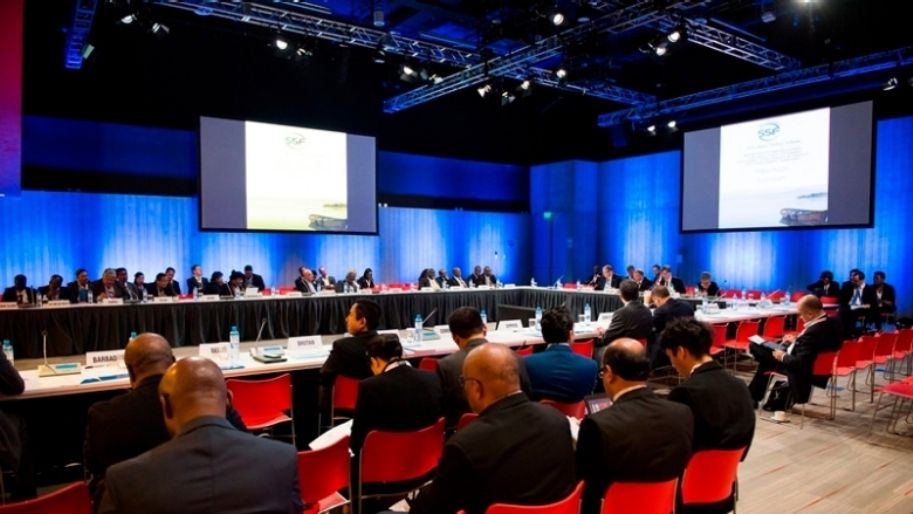Grenada PM presents his vision for Small States Forum
World Bank-IMF Spring Meetings host Small States Engagement Update 2017
The new chairman of the World Bank’s Small States Forum, Prime Minister of Grenada, Dr. the Rt. Hon. Keith Mitchell, presented his vision for the Forum’s future at the 'Small States Engagement Update 2017' held on April 20, 2017 in Washington, D.C. Prime Minister Mitchell outlined the agility of Small States and the need for a change in narrative where small size is not seen as a disadvantage but as a distinct advantage.
The 2015 Paris Agreement (COP21) and the Sustainable Development Goals (SDGs) have shifted the World’s trajectory as it relates to the importance of the role that Small States occupy. Dr. Mitchell noted that some islands have up to 1,000 times more space at sea than they do on land and, as a result, have been at the forefront of the SDG 14 on oceans.
The Grenadian Prime Minister also remarked on the potential for Small States in areas such as the Blue Economy, renewable energy and technology.
“In the Pacific they have created ‘the OPEC of Tuna Fisheries,' and the ‘Pacific Possible’ initiative seeks new opportunities beyond fisheries.”
“In the Caribbean, our coastal resources have become the main engines of our economies. A new World Bank study values the Caribbean Blue Economy at $409 billion,” Dr. Mitchell said.
Despite the high energy costs that saddle Small States, the new chairman outlined the great potential for these States to produce Geothermal energy, solar energy and wind energy at cheaper rates.
“Compared to large developed economies, the Caribbean is paying 200-500 percent more for electricity. In remote islands in the Pacific, it can be as high as 1,000 percent more.”
“Small States can set an example for the rest of the world. We can make the renewable energy the de facto source of energy for ourselves by 2030,” Dr. Mitchell said.
The new chair also noted the ‘triple trap’ that Small States face with climate impacts, high fossil fuel prices and high levels of indebtedness, stressing the need to develop the Small States Forum into a platform for action as it relates to access to finance and capacity building.
Prime Minister Mitchell said that the International Development Association's (IDA) 50% increase from 50 billion to 75 billion is a major opportunity for Small States that are eligible for this financing. He stressed the need to quicken processes so that Small States can show successes at the IDA 2018 Midterm Review.
“We propose that the Small States IDA allocation be front loaded and fast tracked. This money should not be used for business as usual projects, but for strategic and transformational projects that can crowd-in private sector investment,” Dr. Mitchell said.
The Grenadian leader also addressed the ineligibility of some Small States to receive concessional finance and proposed that ‘vulnerability’ be a determining criterion that will be mainstreamed into lending operations by October, 2018.
Prime Minister Mitchell concluded with his vision for the Small States Forum to include a Fund of Funds for strategic and transformative Public-Private Partnership (PPP) projects and to serve as a platform for partnerships, finance, innovative solutions, private sector engagement and south-south learning.
Presentations at the 'Small States Engagement Update 2017' were followed by a panel discussion that focused on the next steps for the Small States agenda.
Source: Small States, World Bank





